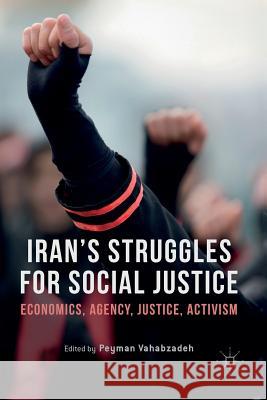Iran's Struggles for Social Justice: Economics, Agency, Justice, Activism » książka
topmenu
Iran's Struggles for Social Justice: Economics, Agency, Justice, Activism
ISBN-13: 9783319830162 / Angielski / Miękka / 2018 / 323 str.
Kategorie:
Kategorie BISAC:
Wydawca:
Palgrave MacMillan
Język:
Angielski
ISBN-13:
9783319830162
Rok wydania:
2018
Wydanie:
Softcover Repri
Ilość stron:
323
Waga:
0.48 kg
Wymiary:
23.39 x 15.6 x 1.83
Oprawa:
Miękka
Wolumenów:
01
Dodatkowe informacje:
Wydanie ilustrowane











